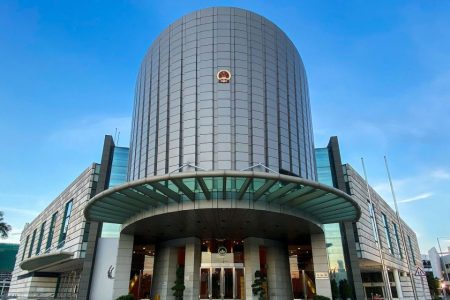Legislators want the government to explain some of the additional types of crimes which a new bill proposes should merit police to tap telephones.
Lawmaker-cum-unionist Ella Lei Cheng I, who heads the Legislative Assembly’s (AL) 1st Standing Committee, revealed lawmakers’ concerns following the committee’s closed-door meeting yesterday. No government officials attended the meeting, which was the first one after the bill’s outline was passed during a plenary session last month.
According to the government, the bill, which is formally known as Legal System on Communications Interception and its Protection, aims to allow the police to tackle ever more sophisticated crimes due to the rapid development of telecommunications technology while ensuring higher protection of citizens’ privacy rights.
Telephone tapping by the police is currently regulated by Articles 172 to 175 of the Penal Procedures Code, which came into force in 1997.
The bill proposes to cover additional types of suspected crimes that will allow the police to resort to tapping telephones that are currently not covered by the Penal Procedures Code, such as terrorism, money laundering, crimes endangering national security, organised crime, human trafficking, cybercrimes, crimes related to external trade activities and bribery.
Lei said that the committee members are concerned whether all of the proposed additional kinds of crimes to be covered by police telephone tapping would be in line with the “proportionality principle” of offenders’ punishment.
The bill proposes that the police will only be allowed to intercept communications for certain crimes after obtaining formal approval from a judge who concludes that intercepting the communications is “necessary” for the police to be able to discover the truth, or when it is impossible or difficult for the police to collect the respective evidence any other way. This proposed principle is similar to the current telephone tapping rules listed in the Penal Procedures Code.
The bill also proposes various forms that the police can use for intercepting communications, such as surveillance, interception, audio recording, video recording and copying, as well as “other similar means that are necessary and consistent with the purpose of criminal investigations”. Lei said her committee will ask the government to explain in more detail what such “other similar means” would include.
Lei also said that some of the committee members suggested that the government set up a mechanism to regularly publish data to summarise cases where the interception of communications has been authorised without compromising judicial secrecy and without disclosing details of the respective cases. She added that her committee would soon pass to the government a list of questions raised by the members during yesterday’s meeting about the bill, The Macau Post Daily reported.






